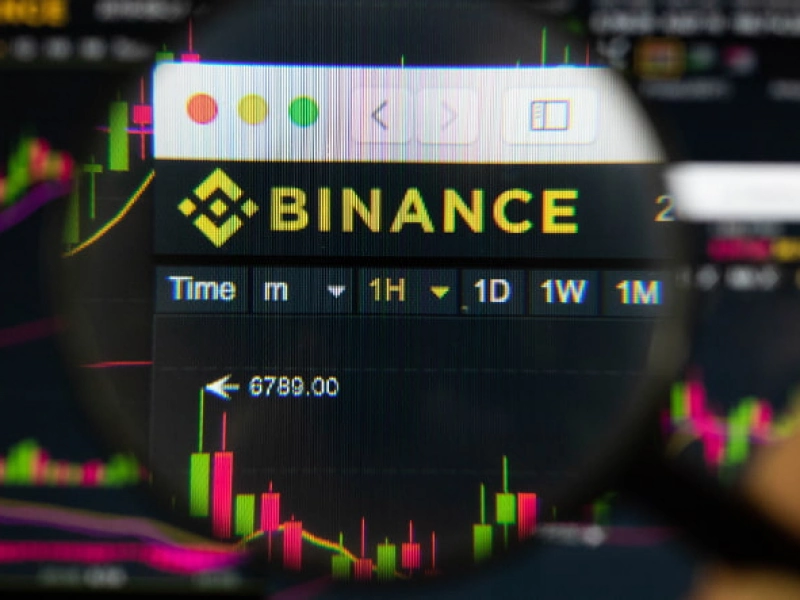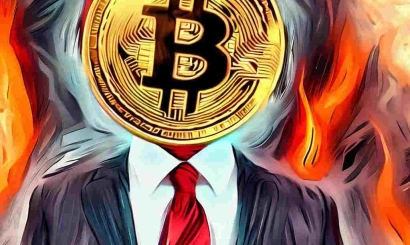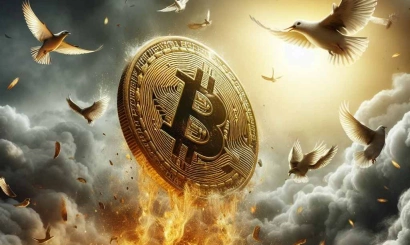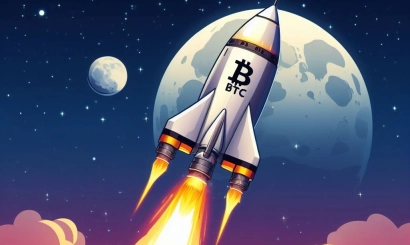Binance is the world's premier cryptocurrency exchange. What could change this status quo
The exchange continues to gain market share while facing challenges and regulatory scrutiny
The world's largest cryptocurrency exchange, Binance, continues to gain market share while attracting more attention from regulators and critics. According to representatives of the exchange, the complexity of interacting with regulators is complicated by a number of subtleties inherent in the crypto-sphere.
Binance has set a goal of hiring an independent auditor to conduct a full balance sheet review, but large companies aren't taking the risk of working with cryptocurrency platforms just yet. Their analysts are still examining the sector, which lacks agreed-upon standards for issues such as price volatility, Leon Fung, Binance's head of Asia Pacific, told Bloomberg in an interview.
More time will be needed, he said. Fung lamented the limited resources of traditional auditors, specifying that they need additional insight into an area beyond their expertise. There will be problems if "they get it wrong," he said, speaking to reporters.
Why audits are so important
Confirmation of cryptocurrency assets, performed by an auditor with a global reputation, is very important, explains co-founder of ENCRY Foundation Roman Nekrasov. First of all, it is important for working with managers of large funds and institutional investors, i.e. those who invest their client's assets. In addition, the availability of confirmed reserves is a trump card when communicating with global regulators, who are watching the crypto industry more and more closely year after year. For Binance, the presence of reserves is all the more relevant because the company issues its own BUSD stablecoin, the expert adds.
Binance has established itself at the center of the digital asset sector, which has come under increased pressure and demands for transparency following the high-profile collapse of the FTX exchange. This is not the first time representatives of the exchange refer to the difficulties of auditing in the field of cryptocurrencies, but at the same time the annual reports of the second largest cryptocurrency exchange Coinbase regularly compiled by Deloitte, that is the very fact that the representative of the "big four" deals with the crypto business, is quite.
"The absence of a reliable audit partner is a big reputational risk and increased risks of various legal proceedings with regulators, mostly American ones," Nekrasov specifies.
In December 2022, Binance introduced a so-called "proof-of-reserves" (proof-of-reserves) based on an analysis conducted by accounting firm Mazars Group. It was an attempt to reassure customers about the safety of their assets. The report was not consistent with a full financial audit, and Mazars later suspended its work with cryptocurrency companies.
"The situation is pretty alarming." Is it worth it to withdraw funds from Binance
The head of the exchange, billionaire Changpeng Zhao, said in late 2022 that users' assets were "secured 1:1 and Binance itself was debt-free." The comments came just after the exchange experienced a massive outflow of funds amid a global decline in user confidence in centralized trading platforms after the FTX story.
In January 2023, the exchange admitted that it had mistakenly stored collateral for some of the tokens it issued in the same wallet as the exchange's customer funds. It also acknowledged past flaws in the management of its stackable coin reserves. Binance is now working to separate pledged funds and customer assets as quickly as possible, Fung said in an interview. He added that the exchange is also seeking to produce a new and expanded proof-of-reserve report.
Binance employs more than 7,000 people. The exchange is not mentioned in the ever-growing list of cryptocurrency companies that cut jobs after last year's market crash. Coinbase, the second-largest cryptocurrency exchange, laid off 1,100 employees over the summer, explaining the decision as preparation for a "long crypto winter." About the same number of employees were forced out of their jobs at Kraken in November, and layoffs were also reported by ByBit, Crypto.com, Gate.io and other trading platforms.
Fung says the company wants to attract 200 million users from the Asia-Pacific region and is evaluating where to invest to improve service and customer protection. At the same time, she is focusing on improving efficiency and identifying areas for hiring and "where to restructure if necessary."
The Asian segment of the crypto market does seem to have a strong interest in Binance. It recently bought a majority stake in Gopax, a major Korean crypto exchange. In November 2022, the exchange bought a stake in Japan's Sakura Exchange (SEBC), and in December the media reported that it plans to increase its stake in Indonesia's Tokocrypto platform to nearly 100 percent.
"It's getting harder and harder to balance."
Binance currently holds the largest share of the crypto market. According to research firm CryptoCompare, the exchange accounted for 55 percent of global spot cryptocurrency trading in January 2023, seven percentage points higher than it was after the FTX exchange collapsed in November.
"The company's share is very large. It also poses the risk of excessive regulatory scrutiny. I would say right now Binance is a bit of a colossus on clay feet, where the feet are AML and KYC procedures," commented Nekrasov.
Being registered offshore and without an official headquarters, Binance often faces scrutiny from global regulators. In January 2023, the US authorities named Binance as a "counterparty" to the crypto service Bitzlato, which they accuse of laundering millions of dollars in criminal money. Exchange officials immediately said they were open to any cooperation with law enforcement.
This week, Binance temporarily suspended bank transfers in dollars for users, without giving official reasons. In January, one of the exchange's banking partners, Signature Bank, also without giving a reason, said it would stop making transfers to its customers who buy or sell assets worth less than $100,000.
Binance has been trying for years to balance compliance with various anti-money laundering regulatory requirements and the ideals of a decentralized crypto world with its lack of censorship in transfers "as the main value of cryptocurrencies," Nekrasov reasoned, adding that "it's getting harder to balance every year."
Market share
Binance's growing share of the cryptocurrency market coincides with its overall rise after a difficult 2022, which will be remembered for several stages of significant collapses and prices, a series of high-profile bankruptcies of leading players and mass layoffs.
The crypto market capitalization recently surpassed $1 trillion for the first time since the FTX crash in November, and the top two cryptocurrencies, bitcoin and Ethereum, rose 40% and 30% respectively in January. Cryptoassets have seen $230 million in inflows this year, according to investment group CoinShares.
Binance's other competitors are struggling to keep up. After the collapse of FTX, U.S.-based Coinbase increased its spot market share by less than one percentage point to 6.5 percent. According to CryptoCompare, other exchanges, including Kraken or Crypto.com, saw their shares shrink over the same period. At its peak last summer, FTX controlled about 5.6% of the spot market.
Binance has also increased its presence in cryptocurrency derivatives, where FTX had a 4% market share before its collapse. Since November, Binance's share of cryptocurrency derivatives trading has increased from 58% to 61%, while its closest competitor OKX's share has remained unchanged at 13-14%.
- "On Assault." Experts predicted bitcoin exchange rate movements
- UK will give up to 2 years for illegal crypto-advertising
- Visa conducted a trial launch of payments in stablecoins in the SWIFT system
- Dubai bans anonymous cryptocurrency issuance and transactions
- Gemini and DCG agree on Genesis debt repayment plan
- The trading volume of AI-related tokens rose 700% in a week
- Dubai bans anonymous cryptocurrency issuance and transactions
- A new trend in the market. Why AI coins are skyrocketing in price






